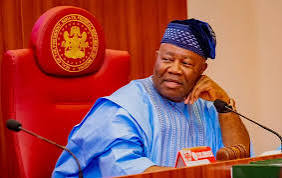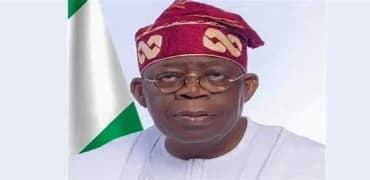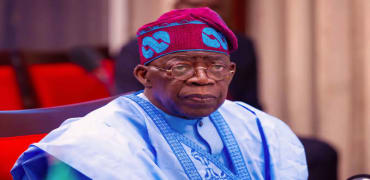Akpabio: Nigerians Reclaimed Democracy Through Struggle, Not Military Benevolence
Akpabio: Nigerians Reclaimed Democracy Through Struggle, Not Military Benevolence
By Achimi muktar
In a charged atmosphere laced with history and symbolism, Senate President Godswill Akpabio declared before a packed chamber that Nigeria’s democracy was not gifted by the military, but reclaimed by the people through blood, sweat, and unwavering resistance.
Speaking during a rare and historic joint sitting of the National Assembly on June 12, Akpabio—alongside House Speaker Tajudeen Abbas—paid glowing tribute to the sacrifices that birthed Nigeria’s democratic journey. The session was highlighted by a first-of-its-kind State of the Nation address delivered by President Bola Ahmed Tinubu, the very first Nigerian leader to do so directly before the parliament.
“You are not just the President of Nigeria today,” Akpabio told Tinubu, “You are a symbol of democratic resistance.”
The Senate President took the nation down memory lane, revisiting the June 12, 1993 presidential election—widely believed to have been won by Chief M.K.O. Abiola but tragically annulled, plunging Nigeria into chaos. Akpabio’s voice swelled with emotion as he described the period as a "dark chapter", marked by protests, arrests, exile, and death.
“Some fled. Some were jailed. But a few stood firm. You were among the few, Mr. President. When others chose silence, you chose courage,” he said, as lawmakers and guests nodded in solemn agreement.
Akpabio emphasized that June 12 must not be reduced to a ceremonial day on the calendar, but seen as a living reminder of the courage and unity that gave Nigerians their democratic voice. He called on the government to deepen the delivery of democratic dividends and ensure that the gains of democracy are not only preserved but expanded.
In a striking moment, Speaker Abbas proposed that the State of the Nation address be delivered annually before Parliament every June 12—a motion swiftly seconded by Akpabio and unanimously adopted by lawmakers.
“Mr. President, this is now the people’s parliament. Let this chamber be the platform where the nation's pulse is felt, where hopes are reignited every June 12,” Akpabio said.
While lauding Tinubu’s reforms—particularly the bold removal of fuel subsidy and the floatation of the Naira—Speaker Abbas challenged the President to replicate this courage in Nigeria’s ailing power sector.
“Mr. President, it’s time to wave your magic wand once more,” he said. “We must shift from over-reliance on thermal and hydroelectric power to an energy mix that embraces solar, wind, and even nuclear.”
Abbas revealed that the National Assembly was working toward passing a people-oriented Constitution by December 2025, with landmark reforms that include:
Reserved legislative seats for women,
Constitutional roles for traditional rulers, and
35% affirmative action for women in governance.
The Speaker also called for an overhaul of the 2007 Mining Act to allow subnational entities to explore solid minerals, describing the sector as “a strategic pillar of Nigeria’s economic diversification.”
Both presiding officers made it clear: despite progress, Nigeria’s democracy remains a work in progress.
“While we celebrate our successes, it is not yet Uhuru,” Abbas said, referencing the Swahili word for freedom. “There is much more to do—and we will not rest.”
As President Tinubu listened intently, the message from the National Assembly was crystal clear: the spirit of June 12 still lives—and it demands more than remembrance. It demands action.
And in that moment, the chamber became more than a legislative hall—it became the echo chamber of a nation still shaping its destiny, one democratic step at a time.



















